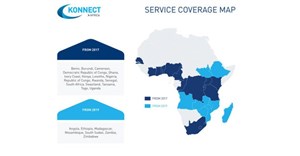Africa Data Science practitioners unveil governing body

The new association plans to establish and capitalise on a continent-wide network to address data science related challenges in Africa and globally.
Thula Ngonyama, founding member of Africa Data Science Association and head of information management and customer insights for PBB Rest of Africa, said ADSA will be a professional body whose main mission is to be a catalyst in developing and promoting globally acceptable data science standard practices; leading collaboration, excellence and innovation for the advancement of the data science profession.
ADSA plans to develop data scientist capability framework, which will include data science accreditation process associated with clear proficiency levels and a data scientist career path. It will also provide a platform for data scientists in the continent and globally to connect and interact through a community of practice for data scientist in Africa. Moreover, they plan to drive and support data science skills development to empower the underprivileged communities and promote excellence in the industry through the recognition of excellence in the data science industry.
ADSA has also introduced the Africa Data Science Association excellence awards, where individuals or organisation are recognised for their effort in advancing data science in the African continent. Award categories include Data Scientist of the Year, Data Science Student of the Year, Data Science Business Leader of the Year and Data Science Organisation of the Year. The nominations will be opened this year on 10 November for the association members only.
Through an annual subscription fee an interested party can join the association either as an individual, academic, corporate and non-member.
“ADSA is a product of frustration on our part mainly because of the challenges business building the data science capability are facing, said Ngonyama. “There is no standardised accreditation process for data scientists – most of the academic institutions do not have a data science junior degree and offers data science only at a post grad level.”
She pointed out business do not have a clear understanding of the value that data scientists could contribute to their organisation’s success. There is limited sharing of use case and excellence is not rewarded in the field of data science, explained Ngonyama.
Simphiwe Phakathi, executive head: Data Quality Management at Standard Bank Group and board member of the Africa Data Science Association, said the association plans on having chapters across the Africa continent. “Most of the board members have experience in working across Africa and this will help the association with context and relevance to establish local chapters – we are starting small and growing.”
The association is still at a foundation stage right now, but the intent is to grow from country to country across Africa, said Ngonyama. The solutions we are hoping to come up with must be across the board in Africa, she added. “We are opening a chapter in Uganda in May, Nigeria (July) and Kenya (September). We do acknowledge there would be different approaches for each country given varying maturity levels and competencies.”
ADSA is looking to develop a framework that help organisations understand what they need to do to develop data science capabilities and reduce barriers to entry into the market for individuals interested in the field, said Phakathi. “We want to make it easy for organisations to find people who have the aptitude and the ability in data science.”








